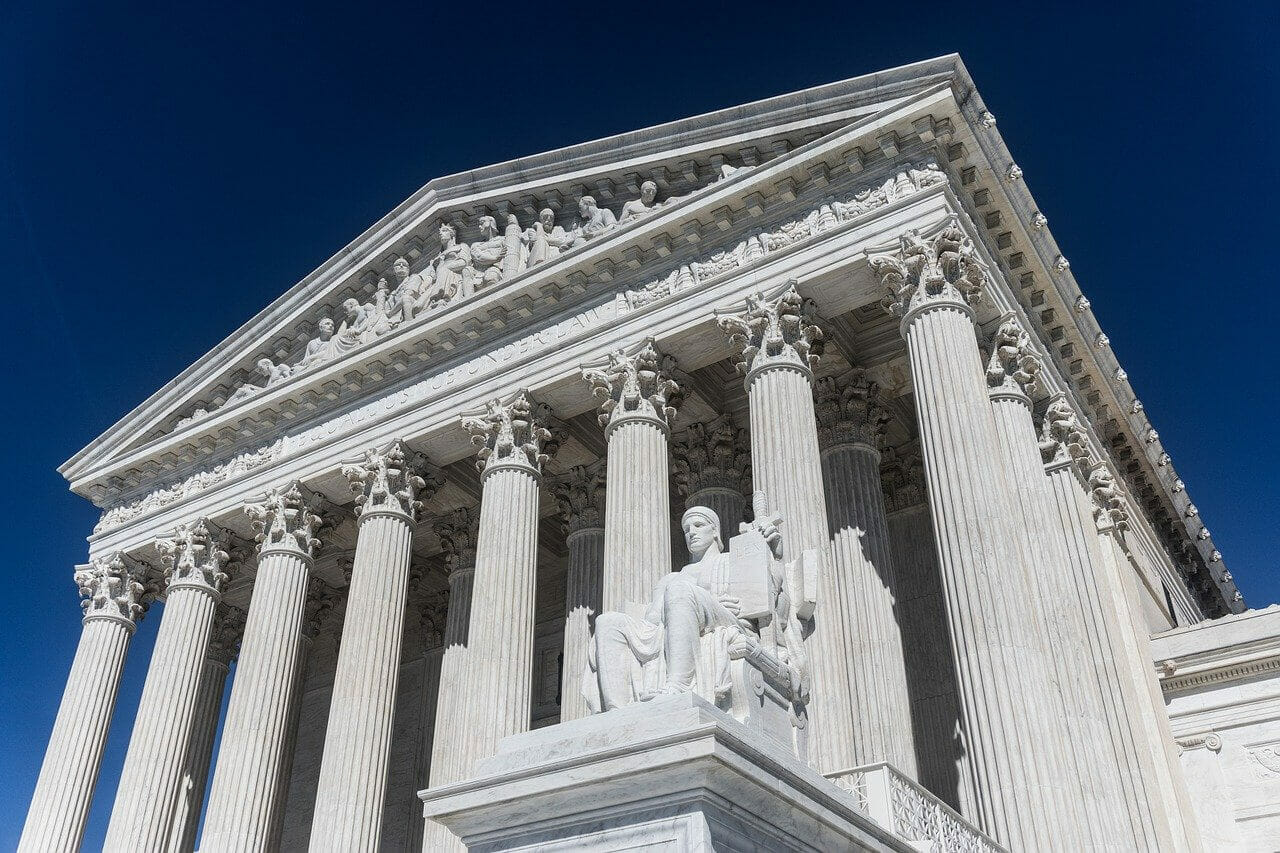By some estimates, professional sports leagues are on the verge of losing $12 billion because of the coronavirus pandemic and saddling them with debt. The figures, which ESPN put together with some help from a number of sources, could go even higher if the NFL and college football aren’t able to get started as planned.
As if that weren’t enough, on top of all the other problems currently facing the leagues and the NCAA, the Supreme Court may soon decide to take up a case that could cost the sports leagues another $150 million of debt, all because of a piece of paper they signed six years ago.
The Betting Bond Gone Bad
In 2014, Monmouth Park Racetrack in New Jersey wanted assurances that a current debate over the status of sports gambling wouldn’t impact its bottom line too drastically while the case was being heard. With the help of the New Jersey Thoroughbred Horsemen’s Association (NJTHA), it secured a bond for $3.4 million from the leagues until the court ruling was given.

100% Bonus up to $1,000 + $25 Token
T&C APPLY | NJ, MI ONLY Join Now
100% Bonus up to $1,000 + $25 Token
T&C APPLY | PA ONLY Join Now
$1000 Risk Free Bet
T&C APPLY | NJ, PA, IN, CO, NJ, MI, IA, LA, MS, OH ONLY Join NowThe justification for the bond was that the track wanted assurances that, due to a judge’s restraining order that prevented it from running a sportsbook, Monmouth Park stood to lose considerable revenue during the month-long order.
What happened next was a testament to the resilience of the sports gambling community. Led by then-governor of New Jersey Chris Christie, a conglomeration of sports gambling enthusiasts, lawyers and legislators continued fighting the nationwide sports gambling ban that had kept states from being able to determine their own fate when it came to gambling.
It took three tries before the Christie coalition had success, but, in 2018, the Supreme Court finally told politicians that they were unequivocally wrong for having passed the Professional and Amateur Sports Protection Act of 1992 (PASPA).
The Plot Thickens
Perhaps the sports leagues never thought they would need to cover the bond debt and they left Monmouth Park and the NJTHA out in the rain. That was a bad move, because neither of the horserace-related entities was going to back down. After all, they’re from New Jersey, where stubbornness is a natural way of life. Since the leagues refused to cover the bond when they should have, they were now going to be expected to come up with a lot more money to make things right in New Jersey.
Monmouth Park and the NJHTA decided that the leagues needed to cover the bond and interest. While at it, they should also cover all the losses incurred by the racetrack for the four years between the initial sports gambling stall and the reversal of PASPA. That amount skyrocketed from the initial $3.4 million to over $150 million. The figure was calculated based on what the racetrack believes it could have earned if it had been allowed to offer sports wagers throughout the entire debacle.

100% Bonus up to $1,000 + $25 Token
T&C APPLY | NJ, MI ONLY Join Now
100% Bonus up to $1,000 + $25 Token
T&C APPLY | PA ONLY Join Now
$1000 Risk Free Bet
T&C APPLY | NJ, PA, IN, CO, NJ, MI, IA, LA, MS, OH ONLY Join NowThe leagues are responsible, according to Monmouth Park and plenty of others in the sports world, because they were involved heavily in influencing politicians and the decision to sign off on PASPA. However, the legislation violated the US Constitution; specifically, the Tenth Amendment. That amendment reads, in part, “Powers not delegated to the United States by the Constitution, nor prohibited by it to the States, are reserved to the States respectively, or to the people.” In other words, because gambling is not prohibited in the Constitution, the federal government cannot prohibit states from offering the activity.
The Supreme Court Might Weigh In
The sports leagues have been fighting Monmouth Park and the NJTHA for the past several years, and the Supreme Court is expected to announce next week whether or not it will take up the case. Both sides of the debate were expected to try to settle their differences, but 11th-hour negotiation failures last Friday are forcing the case onward and upward.
One federal appeals court has already decided in favor of Monmouth Park and the NJTHA and, if the Supreme Court decides not to hear the case, it will return to federal court. With that being a very realistic option, the sports leagues need to start getting their checkbooks ready.
















